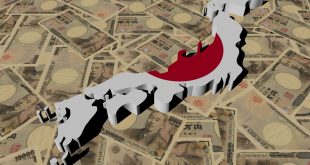Soaring gas and electricity prices, high inflation, the worst squeeze for living standards in decades. The economic outlook was challenging even before Russia’s invasion of Ukraine.
The Bank of England looks set to lift interest rates to 0.75% on Thursday 17 March, its third rate rise in a row as it seeks to tame a dramatic surge in inflation that has been intensified by Russia’s invasion of Ukraine.
UK Households will struggle to put bread on the table as the war pushes energy prices even higher. Now conflict on European soil and economic warfare through sanctions has added to the pressure.
This week the Bank of England is expected to raise interest rates in response to inflationary pressures, as the war pushes up already high energy prices.
The continued conflict in Ukraine means that the UK’s January GDP boost is not supposed to last for long, but the British central bank still seems obsessed with curbing inflation
It will be adding to the cost-of-living crisis by increasing the cost of borrowing, but the idea is to stop high rates of inflation becoming more permanent.
The BoE’s policymakers are likely to vote for a rise from 0.5% to 0.75%, lifting borrowing costs back to pre-pandemic levels for the first time.
Some of its more hawkish members may push for a bigger rise, to 1%, which would be the highest rate since the 2008 financial crisis.
With the impact of western sanctions and Russian countermeasures driving up the cost of oil and gas on international markets, inflation is now set to peak at higher than the 7.25% forecast by the Bank for April, and stay at elevated levels for longer than first thought.
Raising borrowing costs has little impact on global energy prices, and such powerful headwinds will take steam out of the UK economy anyway
Some economists have spoken of inflation peaking close to 10%, compounding an already bitter cost-of-living crisis by adding to energy bills and driving up the cost of petrol and diesel to record levels.
Until Putin’s invasion, Britain’s economy was holding up better than had been expected. Official figures show gross domestic product (GDP) rose at a faster rate in January than City economists had forecast, with a 0.8% rebound on the month from the Omicron-driven dip in activity seen at the end of 2021.
Employment has continued to rise despite the end of the furlough scheme, and companies are still warning of shortages of workers and materials despite some signs of supply chain problems caused by Covid gradually fading.
While all of this was likely before the first Russian tank rolled into Ukraine, Vladimir Putin’s war has complicated an already delicate balancing act for the central bank.
However, it is probable that growth in the opening months of the year was as good as it will get for some time, given the impact of the war on wholesale energy prices and supply lines.
With UK households facing a harsher squeeze, consumer spending is expected to suffer, which will be a drag on economic growth.
UK economic growth is expected at about 1.2% in the first quarter of 2022, similar to the summer of last year, when the easing of pandemic restrictions helped repair some of the damage caused by Covid. However, GDP in the second quarter is expected to come in at only 0.4%.
Every 10% increase in the price of fuel, electricity and gas has the effect of cutting about 0.3 percentage points from household spending and 0.2 percentage points from GDP growth.
Some economists warn that a worst-case scenario of soaring oil prices and energy bills could even tip the UK economy into recession later this year.
Several people have therefore been asking whether the Bank should plow ahead with rate rises when the economy is slowing.
Raising borrowing costs has little impact on global energy prices, and such powerful headwinds will take some of the steam out of the UK economy without the need for higher rates.
BoE is believed to keep a lid on inflation over providing more support to the economy. However, with households facing the worst squeeze in incomes since at least the 1970s, it will need to tread very carefully.

 Noor Trends News, Technical Analysis, Educational Tools and Recommendations
Noor Trends News, Technical Analysis, Educational Tools and Recommendations




